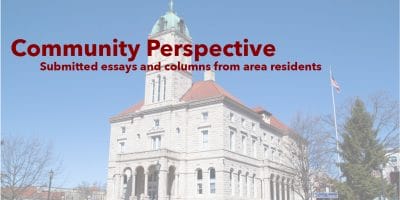A community perspectives piece by members of the Virginia Library Association
Daily we hear cries for book banning by elected officials across America. Sadly, Virginia is not immune. This year the General Assembly proposed legislation that would give the commonwealth increased power to dictate curriculum choices across the state, by restricting what types of books and materials can be accessed and taught, rather than by utilizing in-place, accepted methods. Governor Youngkin’s Legislative Agenda included two such bills that have passed the House and Senate: HB1009 and SB656.
These bills came as no surprise to those of us who fought against the passage of similar ones in 2016. We recognize each bill carries unique components with it, and that some feel HB1009 and SB656 are less drastic compared to several other proposed education bills that did not pass. However slight, we warn against any move away from local choice and toward regulating and censoring reading.
It’s not the first time we’ve seen government overreach by attempting to set policies into state code which are more appropriately decided locally. It’s not the first time we’ve heard elected officials claim parents need control over their children’s reading materials, a right parents already hold. It’s not the first time we’ve seen the government move toward codifying censorship in direct violation of the First Amendment.
We believe concerns leading to the passage of these bills would be better addressed locally, to protect the interests of all stakeholders and to provide flexibility when necessary. In Federalist 10, Madison warned against what we often call the “tyranny of the majority,” citing the harmful effects of “the superior force of an interested and overbearing majority” on government. The more locally power is exercised, the more tyranny is restrained.
We believe labeling of books and material (by policy or law) is a form of censorship. It places the weight of responsibility wrongly on teachers to judge what different parents may deem “sexually explicit.” Legal definitions of the term “sexually explicit” are intended to prohibit criminal conduct, not reading. We do believe in parents’ rights to oversee what their children read; we don’t believe some parents should unilaterally decide for others. This is why we have stood against book challenges aimed at public and school libraries, including in Harrisonburg.
We believe parents, students, and teachers can work together with local policies to resolve individual concerns. This legislative fight was prompted by Nobel and Pulitzer Prize winning author Toni Morrison’s Beloved, a book one vocal parent felt was inappropriate for her son’s 12th grade AP English Literature class. Rather than ask for another option, move him to another class, or otherwise follow her son’s school’s established process, this lone parent manipulated the state legislative system to dictate what other children could read.
Many of the most commonly challenged books include experiences important to communities outside the majority. While Beloved may make some readers uncomfortable, discomfort does not make the book less worth reading. Toni Morrison is among the greatest American writers because she wrote about the human condition. Suppressing students’ ability to read about and experience authentic emotions in response to hard topics ignores that they already face these issues, ask these questions, and advocate for or are part of these communities.
Six books on the American Library Association’s 2020 Top 10 Most Challenged list were written by authors of color. Increasingly, challenges target material dealing with racial inequality and LGBTQIA+ issues. Silencing these voices means the majority culture drives what is allowed in schools and is endorsed as knowledge and worthy of study.
In 1860, Frederick Douglass declared, “No right was deemed by the fathers of the Government more sacred than the right of speech…Liberty is meaningless where the right to utter one’s thoughts and opinions has ceased to exist.” Douglass was right. We are left asking what good utterances are if no one can read or hear them?
We believe liberty is meaningful where people are able to decide for themselves what to utter, and to exchange their thoughts and opinions freely. We not only fail our students when we strip them of this right, we fail America.
K.T. Vaughan, Virginia Library Association President and Harrisonburg resident
Christina Harris, Virginia Library Association Chair, LGBTQIA+ Forum
Olivia Hasan, Virginia Library Association Chair, Librarians of Color Forum
Shari Henry, Virginia Library Association Chair, Advocacy Task Force
Kelly Miller, Virginia Association of School Librarians Information Freedom Chair
Keith Weimer, Virginia Library Association Past President












